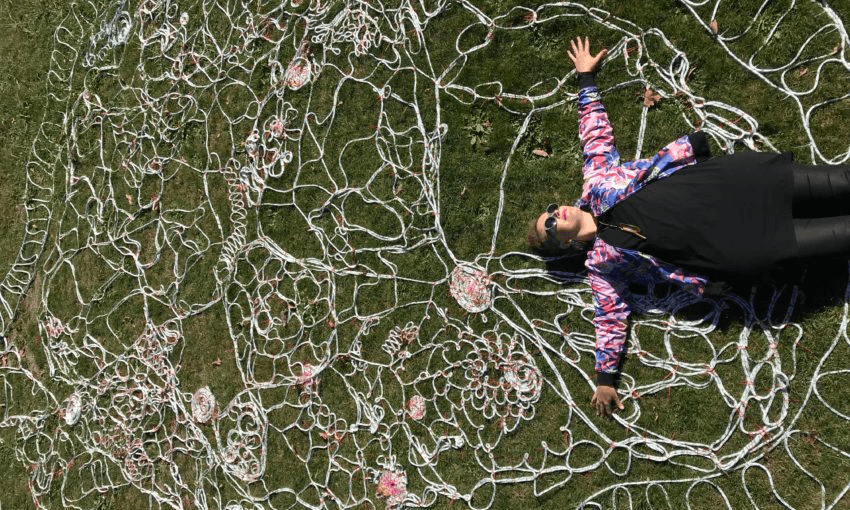Carla van Zon, former artistic director of the Auckland Arts Festival, issues a call for artists to make their voices heard in the battle against climate change.
I am passionate about the arts and believe art can change lives, attitudes and even the world, individual by individual. I also believe that art is pivotal to our response to climate change.
By its nature, art is political, social and spiritual because it speaks about human values, emotions and thoughts that are deeply held – in fact it speaks about the essence of life. And right now, that life is threatened by the climate crisis.
Artists tell us about what is happening in our society, they reflect our world – everything from human emotions to the politics of the times. They help us to understand the past, comment on the present and look into the future. The stories artists tell can provoke discussion and allow us to perceive our world in different ways. They also help us to understand others who are different from ourselves.
As the world becomes more global it seems as though there is an increasing splintering between peoples and a greater fear of difference. We are seeing communities, individuals and leaders turn against diversity and against science, especially if it doesn’t suit their agenda, including denial of human-induced climate change. As 16 year old Swedish climate activist Greta Thunberg argued just last week, we need to unite behind the science and act now on what scientists are calling a “hot-house” climate. The very air that we breathe is dependent on all of us valuing that air.
Art is one of the best ways to communicate that we are all human beings with the same basic desires and needs. The arts can break down preconceived notions and barriers, and help us accept that we need to work together to make change happen. Nigerian artist Ben Okri, once wrote, “Art changes the spiritual place that you stand, and look from, rather than what you’re looking at.”
Climate change can be seen as a cultural issue, in that we need to change our behaviour. Art is a big cultural interpreter, an expression of our identity, a reflection of our society and how we imagine the future we want and don’t want.
Stephen Page, artistic director of Bangarra Dance Company – Australia’s foremost Aboriginal arts company – and a previous director of Adelaide Festival, said: “We live in a world where we can no longer be blind to the myriad of rich cultures of our global kinship. The pursuit of dominance has eroded the cultural values of world families. In an era where we need to rekindle our spiritual consciousness, I believe that the great medicine for humanity is art.”
The arts help us to feel, rather than just know about an issue. A dance, song, film or painting is experienced viscerally, activating different senses, recruiting different parts of our brain and nervous system to generate a response. An artist communicates directly with another human being.
Art can be an entry point for people to engage on the issue, to become more receptive and open to information, and potentially engage more deeply. Irrespective of culture, research shows we need to use storytelling to engage people on climate change.
The arts have a powerful role to play in contributing to knowledge and innovation, making science more accessible and reconnecting to nature by working in collaboration with diverse sectors. The arts can be a disruptor, successfully challenging incumbent values and ideas and being a catalyst for change.
The arts can help us shape a future we all want.
We have seen New Zealand artists like Moana Maniapoto, Miria George, Nina Nawalowalo, Carol Brown, George Nuku, Troy Tu’ua, Nigel Brown, Gabby O’Connor, Joseph Michael, Gareth Farr, Warren Maxwell, Dr Huhana Smith and Michel Tuffery who have already created work about our natural world and the changes that are happening to it.
We need even more art work to ravish the eyes and the ears, to enchant the soul, make the heart leap, make you laugh out loud, challenge the brain.
I encourage all artists who are passionate about our world and the climate crisis to make work that is so desperately needed for our survival.
Artists working together with scientists may be a way to reach many people and help us all to respond. Track Zero is a charity that’s offering an opportunity and some financial support for artists to work with scientists in a series of workshops and development phases to create work (and a performance opportunity) that is relevant and necessary now.
Science has identified the problem and provides solutions. But it’s the arts that are pivotal in telling us about who we are and what we want to be – and providing narratives of hope to help shape our response to the biggest challenge of our era.



